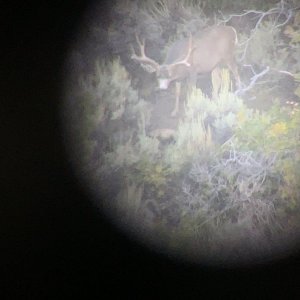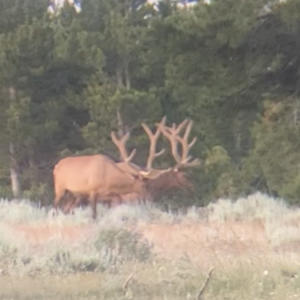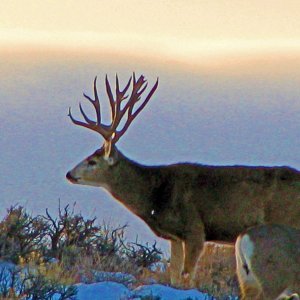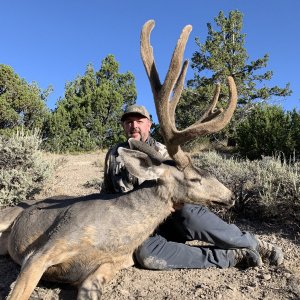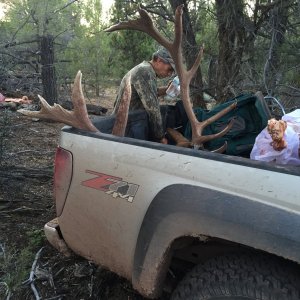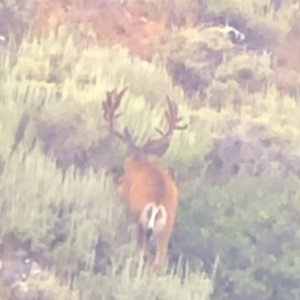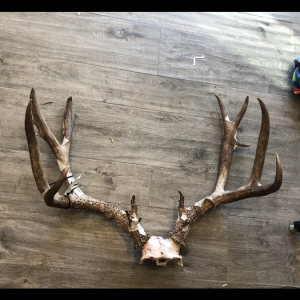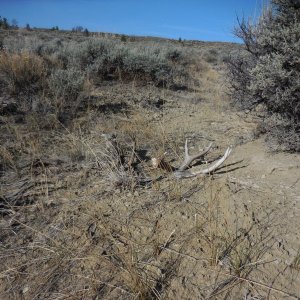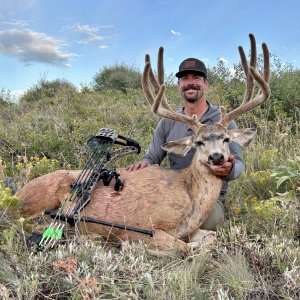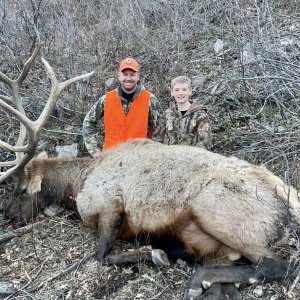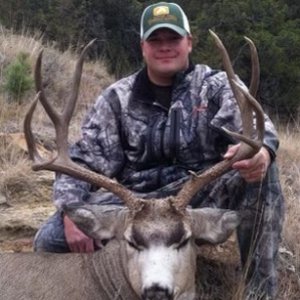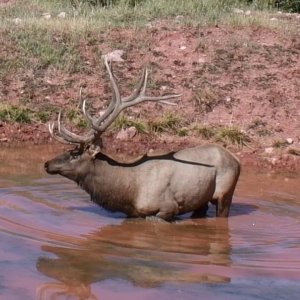wileywapati
Very Active Member
- Messages
- 1,808
LAST EDITED ON Mar-21-16 AT 05:13PM (MST)[p]
North American Model of Wildlife Conservation
The North American Model of Wildlife Conservation is a set of principles that has guided wildlife management and conservation decisions in the United States and Canada. Although not formally articulated until 2001, the model has its origins in 19th century conservation movements, the near extinction of several species of wildlife (including the American Bison) and the rise of sportsmen with the middle class. Beginning in the 1860s sportsmen began to organize and advocate for the preservation of wilderness areas and wildlife. The North American Model of Wildlife Conservation rests on two basic principles ? fish and wildlife are for the non-commercial use of citizens, and should be managed such that they are available at optimum population levels forever.
Wildlife as Public Trust Resource
In the North American Model, wildlife is held in the public trust. This means that fish and wildlife are held by the public through state and federal governments. In other words, though an individual may own the land up which wildlife resides, that individual does not own said wildlife. Instead, the wildlife is owned by all citizens. With origins in Roman times and English Common law, the public trust doctrine has at its heart the 1842 Supreme Court ruling Martin V. Waddell.
Elimination of Markets for Game
Commercial hunting and the sale of wildlife is prohibited to ensure the sustainability of wildlife population. This principle holds that that unregulated economic markets for game and nongame wildlife are unacceptable because they privatize a common resource and lead to declines. The Lacey Act of 1900 effectively made market hunting illegal in the United States, and the Migratory Bird Treaty Act of 1918 provided international protections from the market.
Allocation of Wildlife by Law
Wildlife is allocated to the public by law, as opposed to market principles, land ownership, or other status. Democratic processes and public input into law-making help ensure access is equitable. Laws regulating access to wildlife include the 1940 Bald and Golden Eagle Protection Act, Endangered Species Preservation Act and Fur Seal Act of 1966, the Marine Mammal Protection Act of 1972, and the 1973 Endangered Species Act.
Wildlife Should Only be Killed for a Legitimate Purpose
Under the North American Model, the killing of game must be done only for food, fur, self-defense, and the protection of property (including livestock). In other words, it is broadly regarded as unlawful and unethical to kill fish or wildlife (even with a license) without making all reasonable effort to retrieve and make reasonable use of the resource.
Wildlife is Considered an International Resource
As wildlife do not exist only within fixed political boundaries, effective management of these resources must be done internationally, through treaties and the cooperation of management agencies.
Science is the Proper Tool for Discharge of Wildlife Policy
The North American Model recognizes science as a basis for informed management and decision-making processes. This tenet draws from the writings of Aldo Leopold, who in the 1930s called for a wildlife conservation movement facilitated by trained wildlife biologists that made decisions based on facts, professional experience, and commitment to shared underlying principles, rather than strictly interests of hunting, stocking, or culling of predators. Science in wildlife policy includes studies of population dynamics, behavior, habitat, adaptive management, and national surveys of hunting and fishing.
Democracy of Hunting
This tenet is inspired by Theodore Roosevelt's idea that open access to hunting would result in many benefits to society. The right to hunt in the United States and Canada by citizens of good standing is in contrast to nations where hunting is restricted to people with wealth, land ownership, or other special privileges. This tenet supports access to firearms and the hunting industry, of which much funding for conservation is derived.
"If the DWR was just doing its job, and
wildlife and hunting were the actual focus,
none of this process would even matter.
But that is not the focus or the goal in any
of this. The current DWR regime, and
SFW were born out of wildlife declines,
and are currently operated and funded
under that paradigm. Those 200 Expo
tags would not even be worth anything if
the focus was where it was supposed to
be, and wildlife and tags were plentiful.
But under the current business model,
that is how the money and power is
generated. It is generated through the
rising "value"(monitization) of a declining
resource. A resource that is supposed to
be being beneficially managed for the
masses that own that resource, ie. US.
The problem is obvious, hedging is not a
long term sustainable strategy, and
others have to lose, for some to win. In
this case it is us, the many, and our
resources, that are being forced to lose,
because there is a minority who's power
and money is derived from our loses."
LONETREE 3/15/16
North American Model of Wildlife Conservation
The North American Model of Wildlife Conservation is a set of principles that has guided wildlife management and conservation decisions in the United States and Canada. Although not formally articulated until 2001, the model has its origins in 19th century conservation movements, the near extinction of several species of wildlife (including the American Bison) and the rise of sportsmen with the middle class. Beginning in the 1860s sportsmen began to organize and advocate for the preservation of wilderness areas and wildlife. The North American Model of Wildlife Conservation rests on two basic principles ? fish and wildlife are for the non-commercial use of citizens, and should be managed such that they are available at optimum population levels forever.
Wildlife as Public Trust Resource
In the North American Model, wildlife is held in the public trust. This means that fish and wildlife are held by the public through state and federal governments. In other words, though an individual may own the land up which wildlife resides, that individual does not own said wildlife. Instead, the wildlife is owned by all citizens. With origins in Roman times and English Common law, the public trust doctrine has at its heart the 1842 Supreme Court ruling Martin V. Waddell.
Elimination of Markets for Game
Commercial hunting and the sale of wildlife is prohibited to ensure the sustainability of wildlife population. This principle holds that that unregulated economic markets for game and nongame wildlife are unacceptable because they privatize a common resource and lead to declines. The Lacey Act of 1900 effectively made market hunting illegal in the United States, and the Migratory Bird Treaty Act of 1918 provided international protections from the market.
Allocation of Wildlife by Law
Wildlife is allocated to the public by law, as opposed to market principles, land ownership, or other status. Democratic processes and public input into law-making help ensure access is equitable. Laws regulating access to wildlife include the 1940 Bald and Golden Eagle Protection Act, Endangered Species Preservation Act and Fur Seal Act of 1966, the Marine Mammal Protection Act of 1972, and the 1973 Endangered Species Act.
Wildlife Should Only be Killed for a Legitimate Purpose
Under the North American Model, the killing of game must be done only for food, fur, self-defense, and the protection of property (including livestock). In other words, it is broadly regarded as unlawful and unethical to kill fish or wildlife (even with a license) without making all reasonable effort to retrieve and make reasonable use of the resource.
Wildlife is Considered an International Resource
As wildlife do not exist only within fixed political boundaries, effective management of these resources must be done internationally, through treaties and the cooperation of management agencies.
Science is the Proper Tool for Discharge of Wildlife Policy
The North American Model recognizes science as a basis for informed management and decision-making processes. This tenet draws from the writings of Aldo Leopold, who in the 1930s called for a wildlife conservation movement facilitated by trained wildlife biologists that made decisions based on facts, professional experience, and commitment to shared underlying principles, rather than strictly interests of hunting, stocking, or culling of predators. Science in wildlife policy includes studies of population dynamics, behavior, habitat, adaptive management, and national surveys of hunting and fishing.
Democracy of Hunting
This tenet is inspired by Theodore Roosevelt's idea that open access to hunting would result in many benefits to society. The right to hunt in the United States and Canada by citizens of good standing is in contrast to nations where hunting is restricted to people with wealth, land ownership, or other special privileges. This tenet supports access to firearms and the hunting industry, of which much funding for conservation is derived.
"If the DWR was just doing its job, and
wildlife and hunting were the actual focus,
none of this process would even matter.
But that is not the focus or the goal in any
of this. The current DWR regime, and
SFW were born out of wildlife declines,
and are currently operated and funded
under that paradigm. Those 200 Expo
tags would not even be worth anything if
the focus was where it was supposed to
be, and wildlife and tags were plentiful.
But under the current business model,
that is how the money and power is
generated. It is generated through the
rising "value"(monitization) of a declining
resource. A resource that is supposed to
be being beneficially managed for the
masses that own that resource, ie. US.
The problem is obvious, hedging is not a
long term sustainable strategy, and
others have to lose, for some to win. In
this case it is us, the many, and our
resources, that are being forced to lose,
because there is a minority who's power
and money is derived from our loses."
LONETREE 3/15/16

